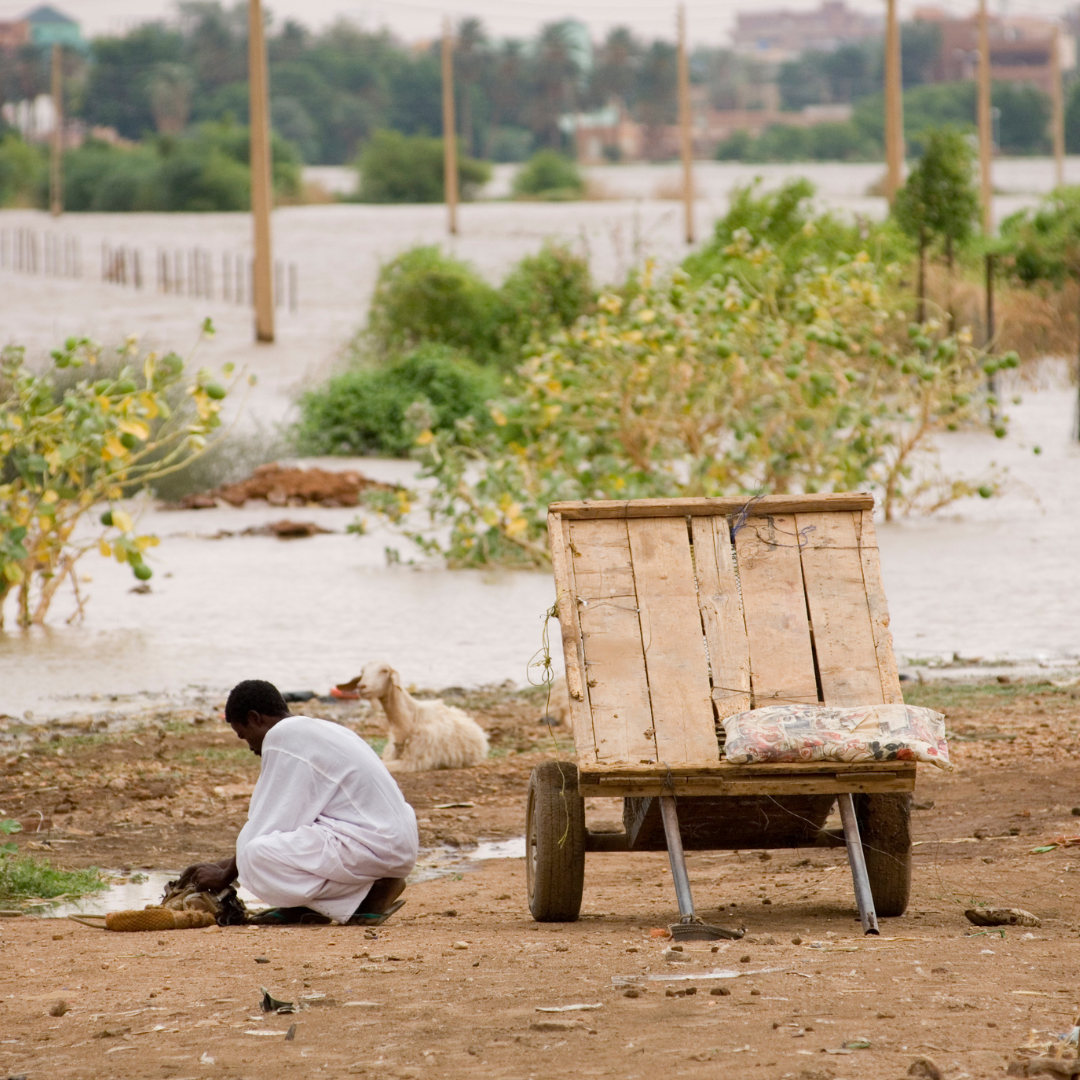Localisation initiative for supporting disaster displaced people in South Sudan
In South Sudan, people displaced by disasters have set up their small businesses after participating in a pioneering new approach to localisation.
Description
In South Sudan, thousands of people are displaced by floods or conflicts and arrive in Juba, the capital, as urban displaced persons. While here, they live very undignified lives with poor shelters, no access to basic needs including food, water, medical supplies and education.
In partnership with GNDR, Root of Generations, (ROG) is a national NGO that has been involved in the Making Displacement Safer project seeking locally-led DRR solutions to challenges faced by populations living in Gumbo, a community on the edge of the capital city of South Sudan. Root of Generations has been involved in locally-led DRR solutions to challenges faced by populations living in urban areas, the project aims to (a) increase understanding of the unique disaster challenges for displaced populations in urban areas; (b) increase the number of innovative approaches for reducing the vulnerability of displaced populations in urban areas; and (c) enhance the approaches and stakeholder roles for reducing the vulnerability of displaced populations in urban areas and institutionalized in national and international systems.
We undertook ‘Views from the Frontline Lite’ research, an assessment tool deployed to understand the threats, consequences, actions and barriers of displaced populations in Juba to understand their challenges and perspectives. We have also carried out stakeholder mapping, gathering case studies and hosting focus groups, stakeholders’ interviews and gap assessments. Findings showed that the majority of the displaced communities cannot afford basic services (food, water, health and shelter) for themselves. The national government, despite recently coming up with a blueprint to address displacement, has very weak institutions drowned in corruption which may not provide immediate solutions.
Based on the key findings and through the “Urban Living Labs” approach, Root of Generations completed innovative solutions to substantially reduce disaster risk and losses in lives, livelihoods and assets, for displaced populations in Juba. The project had an opportunity to engage national duty bearers on advocacy campaigns and support in building resilient livelihoods for the disaster-displaced people.
Did the Sendai Framework change or contribute to changes in your activities/organization? If so, how?
We are the largest international network of civil society organisations working together to strengthen the resilience of communities most at risk of disasters.
What led you to make this commitment/initiative?
What was your position before making this Voluntary Commitment / prior to the Sendai Framework?
Our three-year project funded by USAID’s Bureau for Humanitarian Assistance (BHA) aims to reduce the vulnerability of displaced communities in 11 countries. Directly listening to displaced people is at the heart of our approach – and understanding their lived experience of displacement and the solutions they propose.

